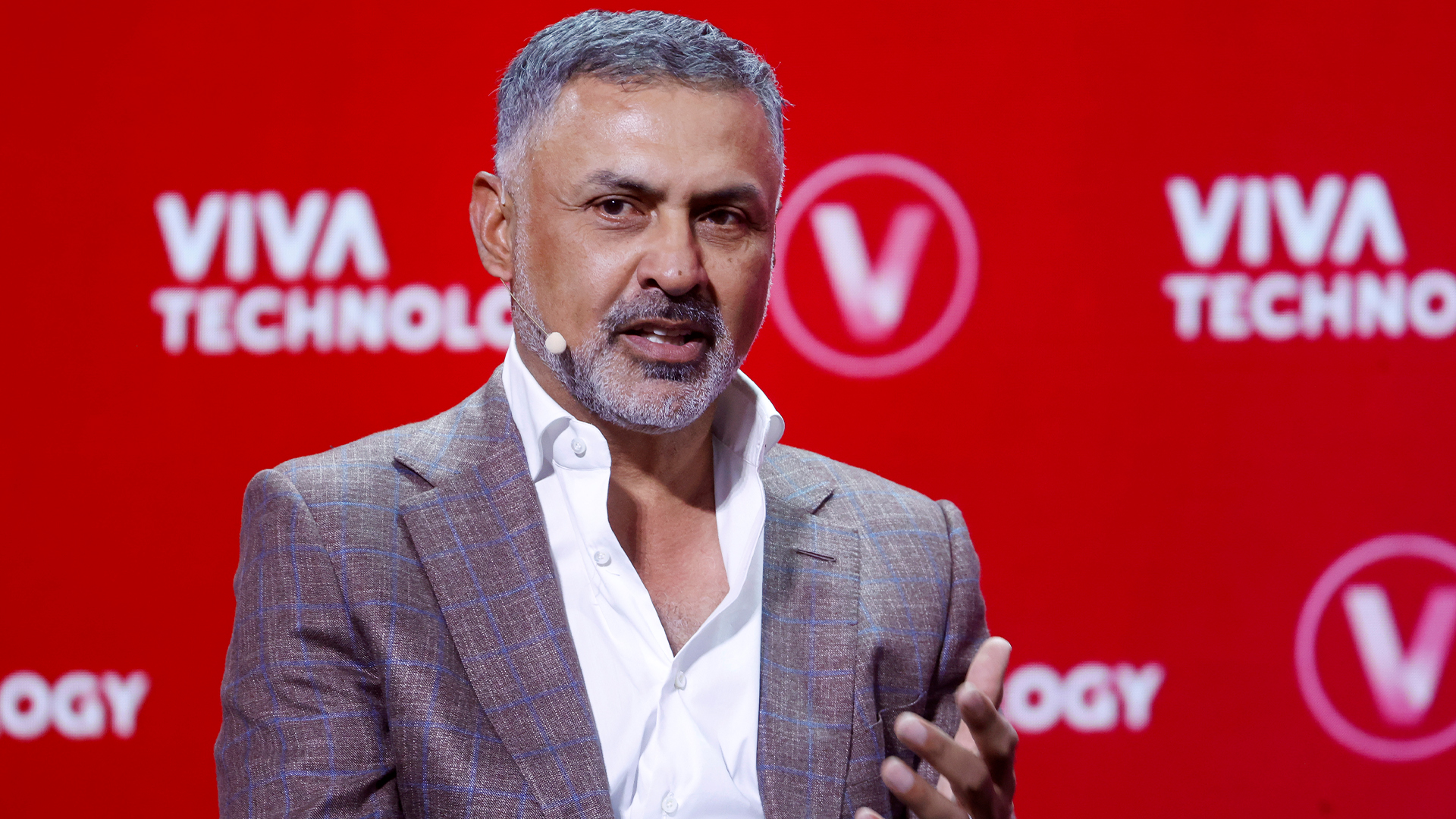Productivity gains, strong financial returns, but no job losses – three things investors want from generative AI
A PwC survey of investors reveals expectations for productivity and financial gains, but also workforce investment


Sign up today and you will receive a free copy of our Future Focus 2025 report - the leading guidance on AI, cybersecurity and other IT challenges as per 700+ senior executives
You are now subscribed
Your newsletter sign-up was successful
Investors are making it clear what they want from generative AI: solid financial and productivity returns, but no job cuts.
That's according to a survey of AI investors by PwC, which found three-quarters of respondents believed generative AI would be beneficial for the companies they've backed.
And six-in-ten investors polled said they expect not only revenue growth but also increased profitability, suggesting a close eye on the costs of AI.
The findings come amid concerns about the high costs of developing and deploying AI – and perhaps slower than hoped for returns on investment (ROI) for some companies.
Indeed, Microsoft said last summer it could take 15 years for its own investments in AI to pay off, but also suggested its customers could expect an ROI of $3.70 for every dollar spent, with further research suggesting AI investment was starting to show real returns.
"Generative AI has been a game changer for businesses worldwide, but investors now expect it to deliver real, measurable value," said Albertha Charles, asset & wealth management leader at PwC UK.
The survey examined AI's biggest opportunities in helping to scale businesses, measuring return on investment – something executives have struggled with – as well as shaping stakeholder perception, and enhancing workforce impact.
Sign up today and you will receive a free copy of our Future Focus 2025 report - the leading guidance on AI, cybersecurity and other IT challenges as per 700+ senior executives
Generative AI gains require workforce investment
However, while 70% of investors said they'd like businesses to get on with deploying AI at scale, even more, some 77%, said that upskilling the workforce was more important, suggesting a view that investors want to see automation in addition to well-trained staff.
"They understand that success isn’t just about technology – it requires investment in people and new ways of working," Charles said.
"As AI adoption accelerates, investors will be watching closely to see how leaders balance technology with upskilling their workforce to unlock meaningful gains in profit and productivity."
That comes amid wider fears of the negative impact of AI on jobs, fueled by companies such as Salesforce and Workday, among others, attributing redundancies to a pivot to AI.
Research suggests upskilling workers is the only way to avert an AI job loss apocalypse – and PwC's survey suggests at least three-quarters of investors are onside with that.
Regulatory pressure
The survey revealed investors saw macroeconomic volatility, geopolitical conflict, and cybersecurity as the biggest risks facing businesses.
RELATED WHITEPAPER

That said, PwC noted that government regulation was deemed an important issue to consider by investors. Six-in-ten respondents named it as a key pressure point for businesses over concerns it was holding back AI adoption.
“The government has been clear that there needs to be a shift in the balance between risk and regulation," said Darren Ketteringham, Financial Services Leader at PwC UK.
"Creating an environment where the financial services sector is more dynamic, resilient, and competitive, will make the UK more attractive to international investment, and we saw evidence of this in PwC’s recent CEO Survey, which showed the UK is the second most attractive global destination for international investment.”
MORE FROM ITPRO
Freelance journalist Nicole Kobie first started writing for ITPro in 2007, with bylines in New Scientist, Wired, PC Pro and many more.
Nicole the author of a book about the history of technology, The Long History of the Future.
-
 Geekom A7 Max Review
Geekom A7 Max ReviewReviews The A7 Max is another impressive AMD Mini PC from Geekom, but you'll need to add a second stick of RAM to unleash its full performance potential
-
 Palo Alto Networks CEO hails ‘the end of identity silos’ as firm closes CyberArk acquisition
Palo Alto Networks CEO hails ‘the end of identity silos’ as firm closes CyberArk acquisitionNews Palo Alto Networks' CEO Nikesh Arora says the $25bn CyberArk acquisition heralds "the end of identity silos" for customers, enabling them to supercharge privileged access management.
-
 Google says hacker groups are using Gemini to augment attacks – and companies are even ‘stealing’ its models
Google says hacker groups are using Gemini to augment attacks – and companies are even ‘stealing’ its modelsNews Google Threat Intelligence Group has shut down repeated attempts to misuse the Gemini model family
-
 Why Anthropic sent software stocks into freefall
Why Anthropic sent software stocks into freefallNews Anthropic's sector-specific plugins for Claude Cowork have investors worried about disruption to software and services companies
-
 B2B Tech Future Focus - 2026
B2B Tech Future Focus - 2026Whitepaper Advice, insight, and trends for modern B2B IT leaders
-
 What the UK's new Centre for AI Measurement means for the future of the industry
What the UK's new Centre for AI Measurement means for the future of the industryNews The project, led by the National Physical Laboratory, aims to accelerate the development of secure, transparent, and trustworthy AI technologies
-
 Half of agentic AI projects are still stuck at the pilot stage – but that’s not stopping enterprises from ramping up investment
Half of agentic AI projects are still stuck at the pilot stage – but that’s not stopping enterprises from ramping up investmentNews Organizations are stymied by issues with security, privacy, and compliance, as well as the technical challenges of managing agents at scale
-
 What Anthropic's constitution changes mean for the future of Claude
What Anthropic's constitution changes mean for the future of ClaudeNews The developer debates AI consciousness while trying to make Claude chatbot behave better
-
 Satya Nadella says a 'telltale sign' of an AI bubble is if it only benefits tech companies – but the technology is now having a huge impact in a range of industries
Satya Nadella says a 'telltale sign' of an AI bubble is if it only benefits tech companies – but the technology is now having a huge impact in a range of industriesNews Microsoft CEO Satya Nadella appears confident that the AI market isn’t in the midst of a bubble, but warned widespread adoption outside of the technology industry will be key to calming concerns.
-
 Workers are wasting half a day each week fixing AI ‘workslop’
Workers are wasting half a day each week fixing AI ‘workslop’News Better staff training and understanding of the technology is needed to cut down on AI workslop
